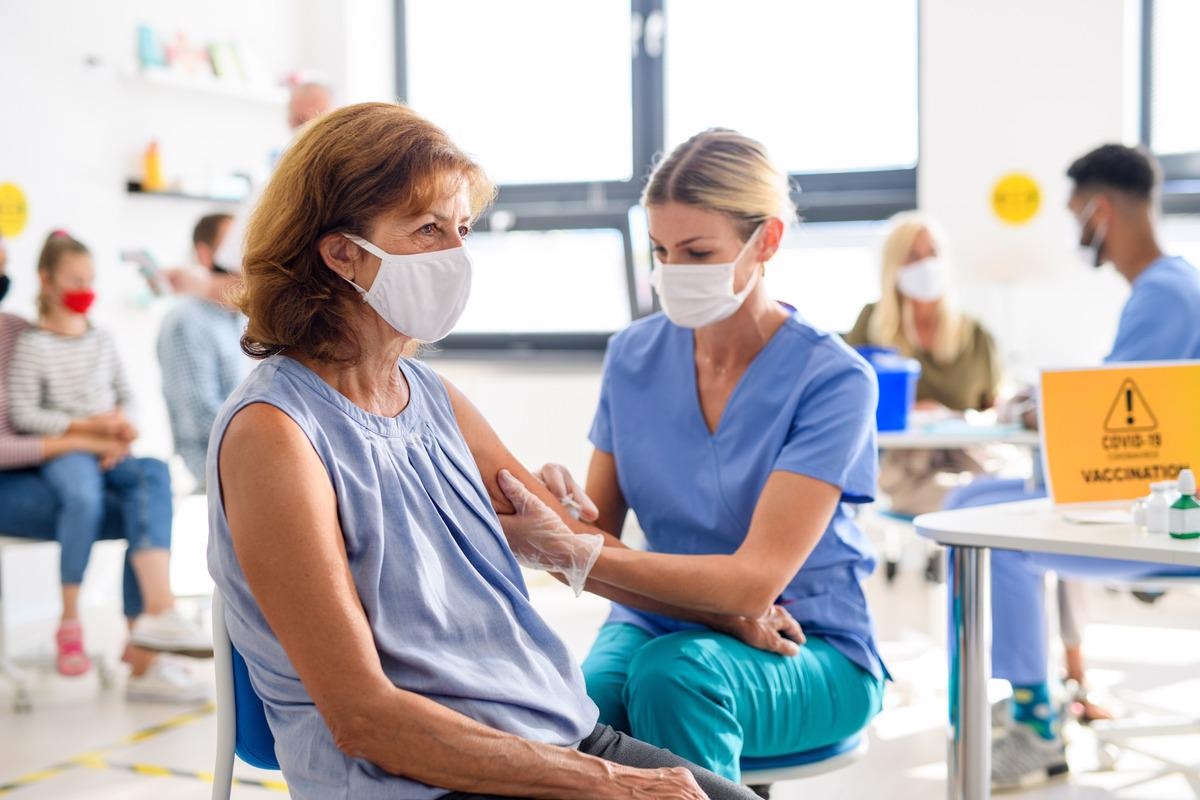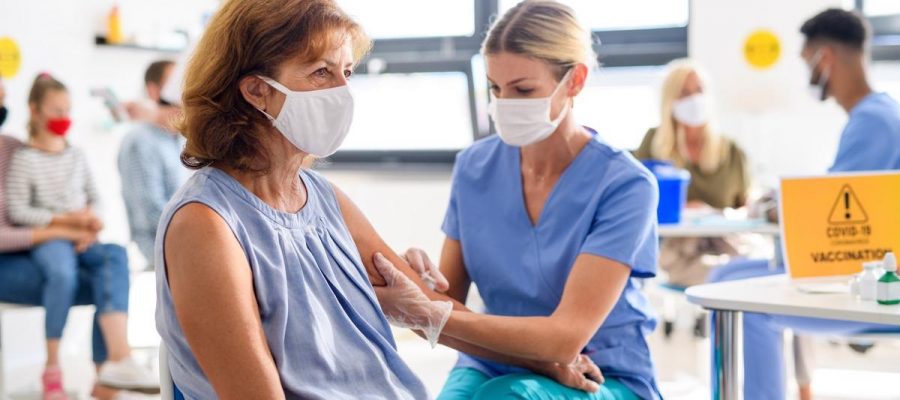In a recent retrospective cohort study posted to the medRxiv* preprint server, researchers investigated whether a coronavirus disease 2019 (COVID-19) vaccine booster dose is effective against the severe acute respiratory syndrome coronavirus-2 (SARS-CoV-2) Omicron variant.
 Study: Coronavirus Disease 2019 (COVID-19) Vaccine Boosting in Persons Already Protected by Natural or Vaccine-Induced Immunity. Image Credit: Halfpoint/Shutterstock
Study: Coronavirus Disease 2019 (COVID-19) Vaccine Boosting in Persons Already Protected by Natural or Vaccine-Induced Immunity. Image Credit: Halfpoint/Shutterstock
After reports of vaccine breakthrough infections surfaced, studies uncovered the waning of immune responses after a certain period following the complete vaccination course. Therefore, people were advised to take a booster vaccine dose, and in several resource-rich countries, booster vaccination campaigns had commenced. Soon after the emergence of SARS-CoV-2 Omicron in November 2021, it became the predominant variant in circulation across many regions and was responsible for the massive surge in COVID-19 infections observed lately.
The Omicron variant, which contains over 35 mutations and many of which in its spike protein, was speculated to evade the protection conferred by vaccination or natural infection. Surprisingly, a substantial proportion of COVID-19 reinfections and vaccine breakthrough cases were documented after the Omicron variant emerged.
The study
In the present study, a team of researchers evaluated if a (non-variant-specific) SARS-CoV-2 vaccine booster dose could protect the immunized or previously infected people against the Omicron variant. The study was conducted between November 26, 2021, and January 28, 2022, and the participants were healthcare personnel of Cleveland Clinic in Ohio, United States.
Individuals were considered naturally protected 14 days after a positive COVID-19 test, and, in these subjects, the booster dose was defined as at least one dose of vaccine ≥ 90 days after COVID-19 infection. Vaccine-induced immunity in people who were not previously infected was defined as at least after 14 days since receiving the second mRNA vaccine dose, and a third vaccine dose offered ≥ 90 days after the second dose was considered a booster shot for this cohort. The authors investigated the time taken to contract COVID-19 infection within the study period and defined the most recent exposure to SARS-CoV-2 by vaccination or infection as proximate over immunologic challenge (POIC).
Findings
The study involved around 39,766 subjects, with about 20 % of them being previously infected and the rest vaccinated. During the nine weeks of study, 6,230 employees contracted SARS-CoV-2, and by the end of the study, over 26,100 subjects received the booster dose. The cumulative incidence of COVID-19 in the vaccinated cohort was significantly lower for vaccine-boosted individuals than those without a booster dose. No such difference was observed for people with natural immunity.
Among those with natural immunity, COVID-19 risk was lowest for POIC within six months, and the risk was higher with an increase in the time since POIC. The risk of COVID-19 in vaccinated participants was higher if POIC was within three-to-nine months and low if POIC was within three months. To their surprise, the authors found lower COVID-19 risk in the vaccinated cohort if the time since POIC was 9-12 months. They suggested that a brief exposure (an unrecognized asymptomatic or pauci-symptomatic episode with the Delta variant) could likely explain the observed decrease of COVID-19 risk.
COVID-19 infection conferred substantial protection up to six months in the absence of vaccination, and the infection risk was more with an increase in the time since the previous infection. In these subjects, vaccination after six months of disease significantly improved their immunity and reduced the risk of COVID-19. Vaccination within six months had no significant changes, and the risk was comparable to that observed in the absence of vaccination. The number of vaccinations after the COVID-19 episode showed dramatic effects. People with a single dose of vaccine after infection were at a lower risk of COVID-19 than those who received two or even three doses after COVID-19.
Conclusions
The study’s findings are consistent with earlier reports that COVID-19 infection leads to a robust immunity compared to vaccination. Prior infection was protective against the Omicron variant for up to six months even without a vaccine, and natural immunity was better than two doses of vaccine-induced immunity.
However, a single dose of vaccine after infection offered significant immunity, but multiple vaccinations had no benefit. Moreover, vaccinating people with a COVID-19 history within six months had lower benefits than immunizing them after six months. An additional booster of non-variant-specific vaccine provides effective immunity against the Omicron variant in previously infected and vaccinated individuals.
*Important notice
medRxiv publishes preliminary scientific reports that are not peer-reviewed and, therefore, should not be regarded as conclusive, guide clinical practice/health-related behavior, or treated as established information
- Nabin K Shrestha, Priyanka Shrestha, Patrick C Burke, Amy S Nowacki, Paul Terpeluk, Steven M Gordon. (2022). Coronavirus Disease 2019 (COVID-19) Vaccine Boosting in Persons Already Protected by Natural or Vaccine-Induced Immunity. medRxiv. doi: 10.1101/2022.02.10.22270744 https://www.medrxiv.org/content/10.1101/2022.02.10.22270744v1
Posted in: Medical Research News | Medical Condition News | Disease/Infection News
Tags: Coronavirus, Coronavirus Disease COVID-19, covid-19, Healthcare, immunity, Omicron, Protein, Respiratory, SARS, SARS-CoV-2, Severe Acute Respiratory, Severe Acute Respiratory Syndrome, Spike Protein, Syndrome, Vaccine

Written by
Tarun Sai Lomte
Tarun is a writer based in Hyderabad, India. He has a Master’s degree in Biotechnology from the University of Hyderabad and is enthusiastic about scientific research. He enjoys reading research papers and literature reviews and is passionate about writing.
Source: Read Full Article
